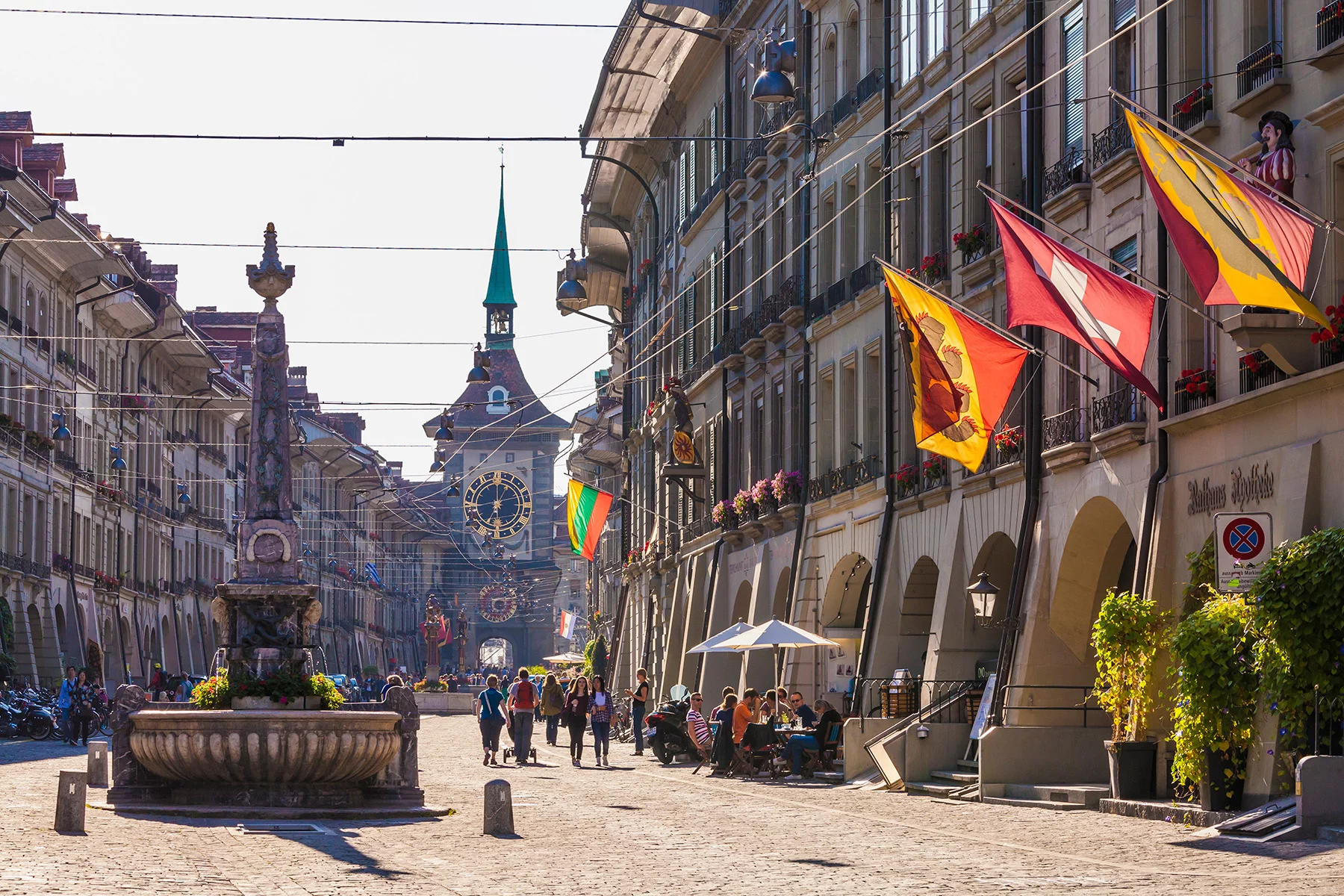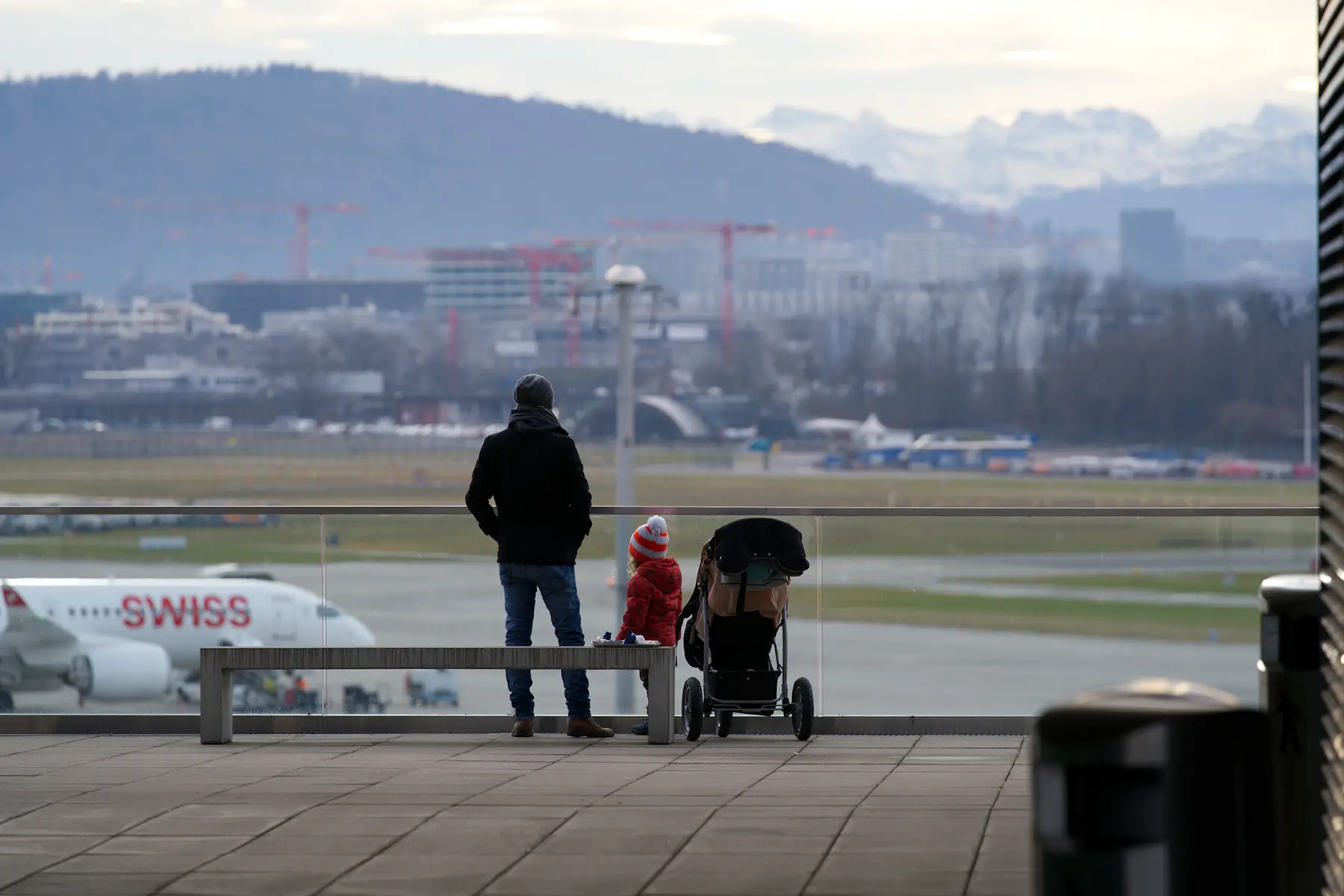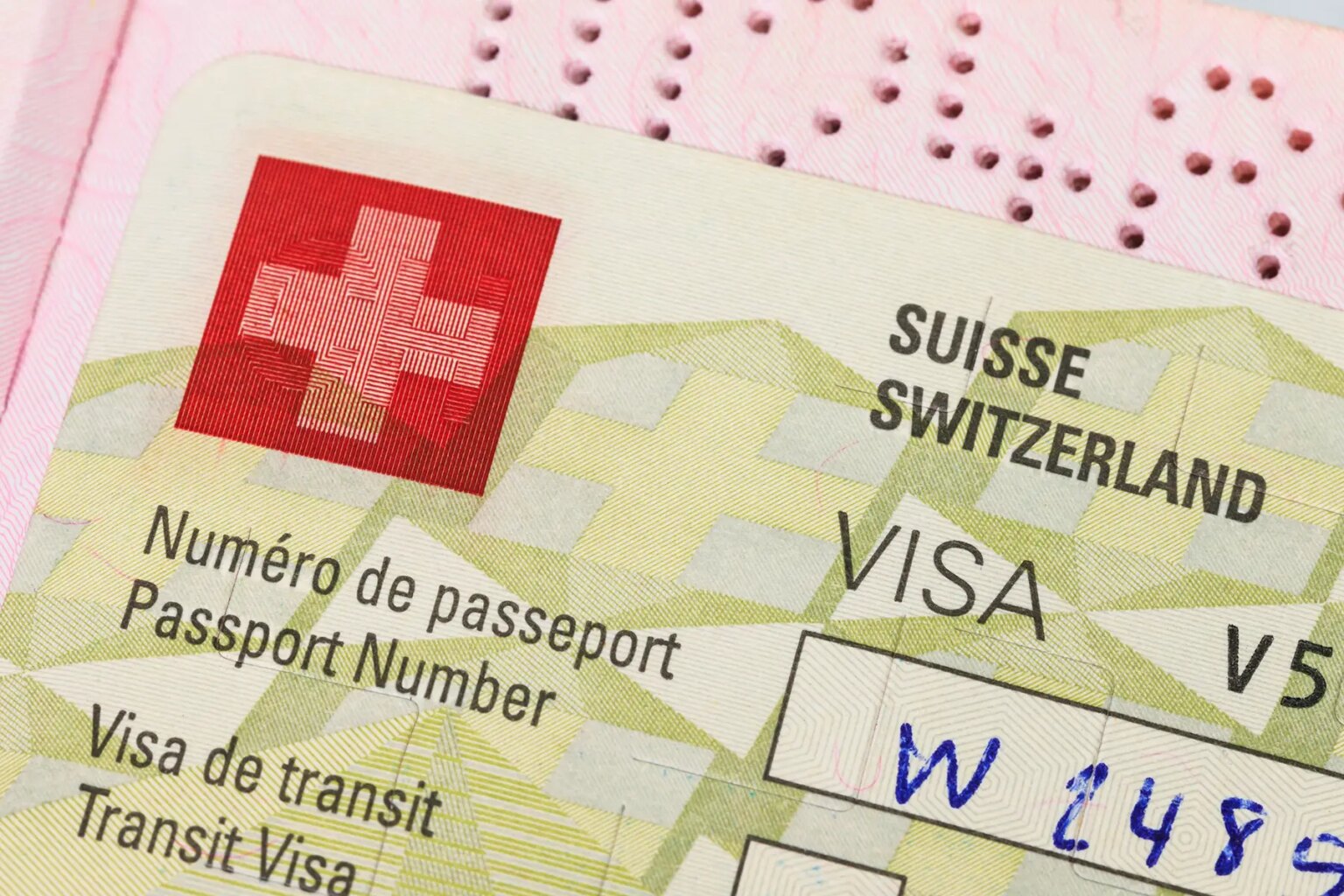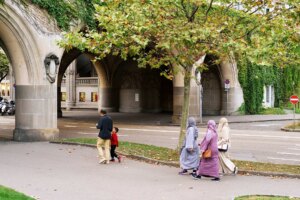Becoming a permanent resident in Switzerland is generally more straightforward that applying for full Swiss citizenship. However, you’ll still have to fulfill a number of requirements, including minimum residency periods.
This guide looks at everything you need to get Swiss permanent residence, including sections on:
- An overview of Swiss permanent residence
- Difference between citizenship and permanent residence in Switzerland
- Requirements for Swiss permanent residence
- How to apply for permanent residence in Switzerland
- Permanent residence costs in Switzerland
- Renewing your permanent residence in Switzerland
- Permanent residence in Switzerland for family members
- Losing your permanent residence rights in Switzerland
- What to do if your application for permanent residence in Switzerland is rejected
- Useful resources
An overview of Swiss permanent residence
Permanent residence in Switzerland is available to anyone who has lived in the country for the required period of time in addition to meeting other necessary requirements.
Anyone who wants Swiss citizenship will first need to become a permanent resident and apply for the “C” permit. However, many expats in Switzerland choose to remain as permanent residents rather than become full citizens. A Federal Commission on Migration study in 2012 found that just 2% of those eligible for citizenship had applied to become a citizen the previous year.
The State Secretariat for Migration (SEM) is responsible for residency permits in Switzerland, although the cantonal migration offices issue the permits.

There is a variety of different visas and residence permits for Switzerland. The permanent residence permit is called the “C” permit. Holders of this permit may stay in Switzerland for an unlimited period of time, although there are restrictions on how long you can leave the country for.
The “C” permit also allows holders to move freely around Switzerland and change jobs, although there are restrictions on leaving and re-entering the country. It is distinct from the other two main residency permits in Switzerland, which are:
- “L” permit, a temporary residence permit issued for short stays of up to one year;
- “B” permit, an initial residence permit usually issued for a year but can be renewed.
The standard residency requirement for a “C” permit in Switzerland is 10 years. However, EU/EFTA citizens and nationals from the US and Canada can apply after five years. Relatives of Swiss citizens can also apply earlier.
Difference between citizenship and permanent residence in Switzerland
There are many similarities between Swiss citizenship and permanent residence. For example, the general residency requirement for both is 10 years, although this is shorter for certain groups. For both, you will need to demonstrate a certain level of integration with Swiss life and customs.
Many applying for citizenship in Switzerland, for example those doing so through the regular naturalization route, require a “C” residence permit. As a result, this means that you may need to become a permanent resident as part of the process of becoming a citizen.
Other similarities between citizenship and permanent residence include:
- Open access to the Swiss labor market
- Being able to work as a freelancer in Switzerland
- The right to education Switzerland and access to educational grants
- Being able to buy Swiss real estate without restrictions
- The ability to move around freely and live anywhere in Switzerland
- Access to Swiss welfare benefits and social assistance (although being in receipt of these may affect your eligibility for full citizenship)
Full Swiss citizenship comes with additional benefits. These include:
- Entitlement to a Swiss passport and the ability to travel abroad as a citizen of Switzerland
- The right to vote in all Swiss elections
- Right to stand for public office in Switzerland
- Freedom to travel in and out of Switzerland as many times as you like and leave the country for unlimited periods without affecting your residency rights
However, Swiss citizenship also comes with additional responsibilities. For example, all male Swiss citizens aged 18–34 have to undertake a period of military service. Furthermore, citizenship applications also cost more and the process can take over a year.
For more information, see our full guide for more information on citizenship in Switzerland.
Requirements for Swiss permanent residence
The requirements for permanent residence in Switzerland vary slightly between cantons, so you will need to contact your cantonal immigration office for full details.
The main requirement for permanent residence in Switzerland is length of time spent already living in the country on another residence permit (typically a “B” or “L” permit).
The standard residency requirement is 10 years, however, the following groups can apply after five years:
- EU/EFTA citizens
- citizens of the United States and Canada
- spouses and children aged 12–18 of Swiss citizens or “C” permit holders

However, children aged under 12 who come to Switzerland to join their family automatically gain permanent residence.
In addition to this, it may be possible to apply for a “C” permit in some cantons if you already hold a “B” permit and can demonstrate:
- knowledge of the national language to A2 level (written) and B1 level (spoken)
- sufficient integration with Swiss life and customs
- a clean criminal record
- that you are of no threat to Swiss security or public order
- economic independence and that you are not in receipt of welfare benefits
Contact your local canton for more information. For most applicants that fulfill the 10-year residency requirement, you will also have to meet the additional requirements (language, integration, etc.).
How to apply for permanent residence in Switzerland
Each Swiss canton has its own specific requirements and procedures for applying for a “C” permit. So, you’ll need to contact your local cantonal immigration office who will then inform you of what needs to be done.
Typically, you will need to fill in an application form and provide:
- valid ID;
- address in Switzerland;
- evidence of existing residence permit (e.g., “B” or “L” permit);
- proof that you meet the necessary requirements (e.g., language certificates)
Switzerland now issues biometric permanent residence permits in the design of a credit card. These permits include a microchip that stores the holder’s biometric data and allows visa-free travel through the Schengen area.
Permanent residence costs in Switzerland
The costs of “C” permits for permanent residence in Switzerland vary from canton to canton. Some cantons charge more for permits issued to non-EU/EFTA nationals. Additionally, children usually pay less. Contact your individual canton for full information on your local situation.
Typically costs are no more than around CHF 95 for an adult permit. Children’s permits are around CHF 35. However, some cantons charge more. For example, the canton of Ticino currently charges CHF 110 for a “C” permit for EU/EFTA citizens and CHF 147 for a “C” permit for third-country nationals.
Renewing your permanent residence in Switzerland
“C” permits are usually valid for five years. You will need to contact your cantonal immigration office to renew your permit no earlier than three months and no later than two weeks before the expiry date on your permit or card.
Following recent changes to the rules, anyone wanting to renew their permanent residence permit in Switzerland now has to meet integration and good behavior requirements. Those who don’t meet these requirements may get their permit downgraded to a “B” permit.
Each Swiss canton has its own specific procedures and costs for renewing “C” permits. Typically, you must provide your existing “C” permit, valid passport/photo ID, and proof of address as a minimum. However, you should contact your cantonal immigration office for full details.
Your permanent residence permit will naturally expire if you leave Switzerland for a period longer than six months. However, if you notify the Swiss authorities in advance, it is possible to arrange for them to extend this period of absence for up to a maximum of four years.
Furthermore, if you lose your residence permit, you should notify the police and apply for a replacement permit at your local cantonal office. You can read more information here.
Permanent residence in Switzerland for family members
Family members can join those with a “C” permit for permanent residence in Switzerland under the family reunion program. Relatives that can join are:
- Spouses or registered partners
- Children under the age of 18
Citizens of EU/EFTA countries can also bring parents, grandparents, and children aged over 18 if they can provide proof of financial independence without recourse to public funds.

Family members will initially get a “B” permit and will be eligible to apply for a “C” permit for permanent residence after 5 years if they meet the necessary requirements. Children aged under 12 will get a “C” permit straightaway.
Full details including application costs depend on which canton you live in, so you will need to contact your cantonal immigration office for information. Typically, family members must provide:
- Passport or valid photo ID
- Swiss visa (if applicable for non-EU/EFTA nationals)
- Proof of relationship to family member who is a Swiss resident
- Evidence that they can support themselves or be supported financially without recourse to Swiss public funds
- Proof of language skills in the national language of the canton (non-EU/EFTA applicants only)
Family members’ residence permits will be valid for the same length as those of the relatives they are joining. They can seek work but need to register with their cantonal immigration and labor market authorities.
See our guide to family reunion visas in Switzerland for further information.
Losing your permanent residence rights in Switzerland
The Swiss authorities reserve the right to revoke or downgrade “C” permits if holders don’t meet conditions for residence in Switzerland. New laws that came into effect in January 2019 state that permits can be downgraded from C to B if the permit holder:
- Lied about important aspects when applying for a “C” permit
- Has been involved in criminal proceedings
- Presents a threat to national or international security
- Has been receiving social welfare benefits
- Is not sufficiently integrated into Swiss society
Furthermore, “C” permits also become null and void if the holder leaves Switzerland for a period of longer than six months, unless they have contacted the immigration authorities and negotiated a longer period of absence.
If you lose your rights to permanent residence in Switzerland, you will be able to reapply as soon as you become eligible again.
What to do if your application for permanent residence in Switzerland is rejected
The cantonal authorities in Switzerland can refuse your application for a “C” permit if they feel that you don’t meet the requirements. If you feel that you have been unfairly treated, you should first try to lodge a complaint through your cantonal immigration office.
If this is unsuccessful, you should contact the SEM. They will be able to advise you of the necessary steps to take if they think you have a case for your application decision being overturned.
Useful resources
- State Secretariat for Migration (SEM) – the Swiss federal authority on matters related to immigration and settlement
- Swiss Authorities Online – web portal with information on a range of topics including visas and residence permits




